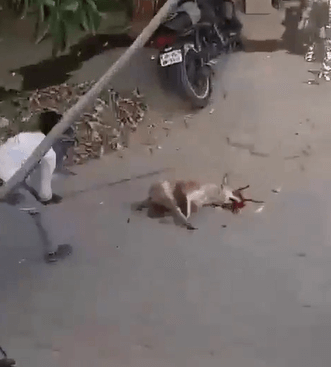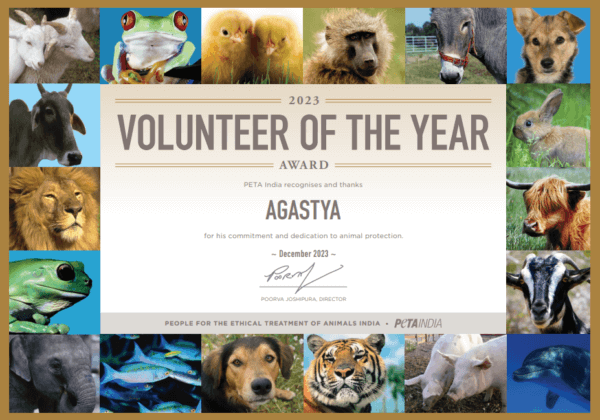Go Plastic-Free for Animals This World Environment Day
Ready to get your green on? India is hosting World Environment Day 2018 on 5 June, which will focus on something that not only pollutes the environment, but also harms animals—plastic.
According to the United Nations, humans use around 500 billion plastic bags each year, which wind up in our oceans, rivers and forests, and hurting and killing animals. Our planet and the fascinating animals who inhabit it cannot wait for governments to ban plastic—they need help from all of us, now. Here’s why:
- By 2050, there will be more plastic in the ocean than fish unless we clean up our act.
- Plastic pollution affects at least 700 marine animal species, and some estimates suggest that at least 100 million marine mammals die from plastic pollution each year.
- 50 per cent of sea turtles mistake plastic for food and die from ingesting it. Plastic straws, bags and even toothbrushes have been found in sea turtles’ stomachs.
- Seals and sea lions become entangled in plastic bags or packing bands that get so embedded they cause infections and death.
- Millions of sea birds are killed from ingesting plastic that obstructs their digestive tracks and puncture organs.
- Numerous studies have shown that the fish meat-eating humans eat have ingested plastic microfibers.
- Whales also mistake plastic debris for food or their mouths are so large they accidentally swallow plastic along with food.
- Cows who eat out of garbage bins ingest plastic bags to access food, which over time, builds up in their stomachs and hardens like cement.
- Plastic pollution runs downstream to where animals feed and drink, which kills them. One elephant who was found dead had 750 kilograms of plastic in his/her stomach.
- Dogs, cats and other animals often get plastic containers stuck around their heads or necks when searching for food, which is deadly.
The good news is that we can all help reduce plastic pollution by making simple adjustments, such as using reusable cloth shopping bags, buying in bulk to reduce packaging, covering your garbage so animals can’t get inside, avoiding plastic straws, reusing glass bottles, always throwing garbage away in designated areas, and steering clear of plastic packaged products. It’s important to find a recycling service and if your area doesn’t have one, encourage your municipality to start one.
Before throwing away plastic jars and containers make sure the lids are on, and cut up or secure other debris that animals could get stuck in. If you do throw food out, don’t seal it in plastic bags or animals will eat the plastic to get to food. If you feel you absolutely must use a plastic-like material, substitute plastic bags with biodegradable, eco- and animal-friendly alternatives like Envigreen’s non-toxic bags made from natural starch, vegetable oil derivatives and vegetable waste. Bakeys’ edible cutlery is made of rice, wheat and jowar (sorghum) flours and they’re vegan!
It’s never been easier to safeguard the environment and animals by ditching plastic, so get started today!







